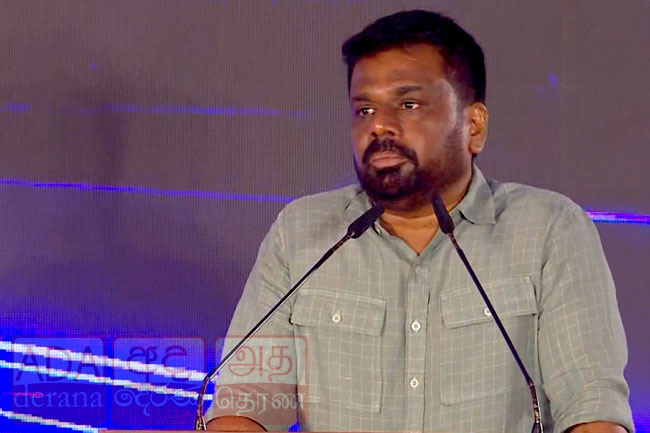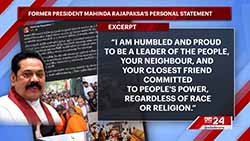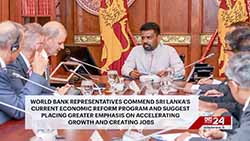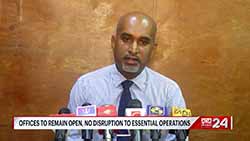‘We aim to end the economic crisis through 2026 Budget’ – President
September 17, 2025 01:39 pm
President Anura Kumara Dissanayake stated that the 2022–2023 economic crisis and the resulting social hardships were not random events, emphasizing that multiple major factors contributed to the situation.
Speaking at the inauguration ceremony for the resumption of construction of the Kadawatha–Mirigama section of the Central Expressway Project today (17), the President assured the public that the country will be developed in a manner that prevents the recurrence of such a crisis in Sri Lanka.
President Dissanayake emphasized that economic stability cannot be achieved through construction alone, and it is being pursued through multiple avenues.
He further stated that he aims to end the economic crisis through the 2026 budget, despite the widespread collapse of the economy and hardships faced by the people.
“During my visit to China last January, I requested the Chinese President to assist in restarting projects initiated with Chinese loan assistance. He gave special attention and agreed to provide the necessary support for resuming these stalled projects. I am very grateful for that,” the President said.
He added, “We also requested a special concessional loan scheme for this expressway section. The Chinese side informed us that no special loan schemes in dollars are available, but payments can be made in Yuan. Accordingly, the Chinese EXIM Bank has expressed willingness to provide this loan at an interest rate of 2.5%–3.5%.”
The President also highlighted his commitment to the rule of law, stating, “We have created the concept of equality before the law and are determined to build a stable state where every citizen is subject to it.”
He condemned organized crime, noting, “Certain groups have created an underground state that mirrors the official state, with access to weapons, police protection, and illegal support from political authorities. This underground state is involved in major social crimes such as shootings and drug trafficking. We will put an end to this.”
Acknowledging the efforts of law enforcement, he said, “Organized crime has caused significant societal damage. The police have accepted the challenge to suppress these groups, and I thank them for their commitment.”
On governance, the President stressed the importance of integrity in public service: “A political authority has been established that does not misappropriate public funds. We have identified individuals within the state machinery addicted to outdated practices. They have an opportunity to adapt to the new politics; otherwise, they will be removed. Public servants must respect every rupee of public money as if it were a corporate asset.”
He announced that Rs. 110 billion has been allocated for public sector salary increases in 2026, with Rs. 330 billion planned for 2027, emphasizing that public servants must provide services commensurate with these allocations.
Further initiatives include the import of 2,000 vehicles for government institutions this year and the complete digitalization of public service operations by next year.
Highlighting economic progress, the President stated, “Significant growth has been achieved in every sector, and this year’s revenue targets will be met. We expect an economic growth rate close to 5% by the end of the year, with foreign reserves increasing to $7 billion. We have already attracted $1 billion in direct investment, and many more projects are scheduled for completion.”
He underscored the country’s progress, saying, “A collapsed state is being transformed into a stable economy. This year marks a significant turning point in Sri Lanka’s history in terms of economy, social life, politics, and the rule of law.”
President Dissanayake also highlighted the importance of citizen development alongside political progress: “We need developed politicians and responsible citizens—not citizens who worship authority but those who fulfill their responsibilities. A nation cannot progress with citizens who fear politicians; it progresses through informed, engaged, and empathetic citizens. Our education reforms are designed to cultivate such citizens.”
Finally, he stressed accountability in public projects, noting, “Failure to complete projects on time causes great economic losses. Officials are responsible for ensuring the Central Expressway is completed on schedule, and the government will provide all necessary support.”












